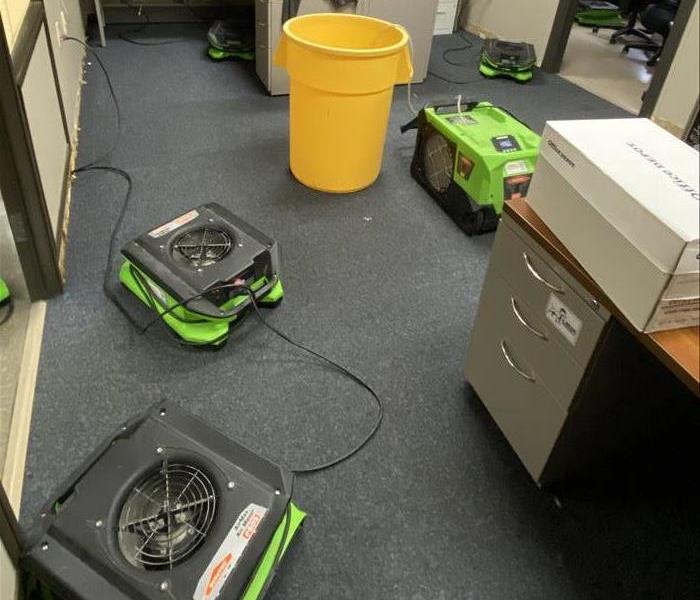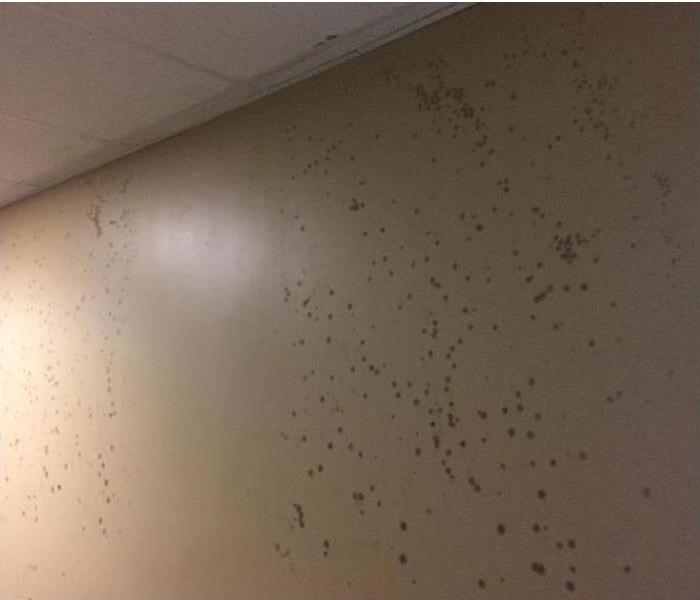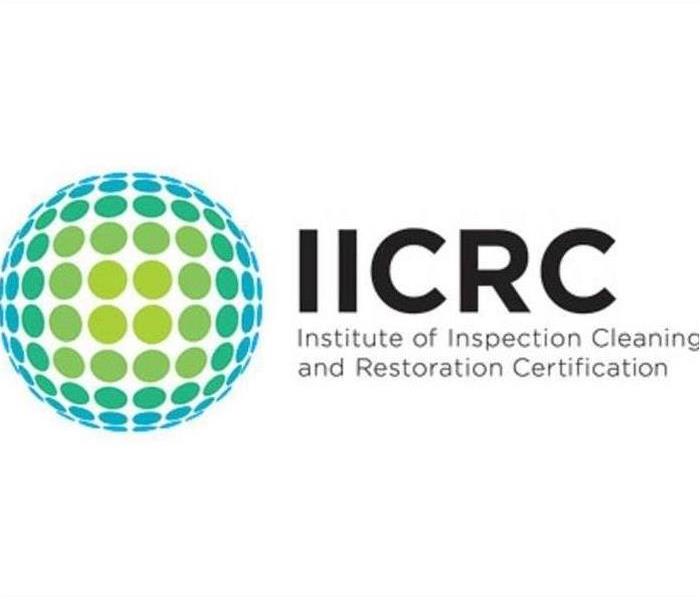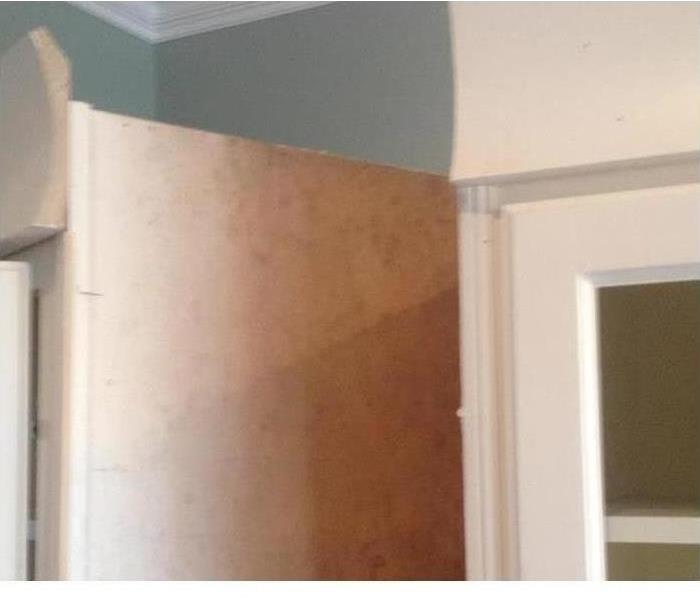Archived Mold Remediation Blog Posts
Mold Awareness and Prevention in Pascagoula: A Guide by SERVPRO®
12/10/2023 (Permalink)
 SERVPRO drying equipment in use
SERVPRO drying equipment in use
Mold is a common issue that can affect homes and workplaces in Pascagoula and other coastal areas. Recognizing the signs of mold and taking proactive steps to prevent its growth are essential for maintaining a healthy indoor environment. In this blog post, SERVPRO® sheds light on how to recognize mold signs and offers practical tips for mold prevention in your Pascagoula home or workplace.
Recognizing Signs of Mold:
Mold can thrive in damp and humid conditions, often hiding in places that are not immediately visible. Here are some common signs that may indicate the presence of mold:
1. Musty Odor:
- One of the most noticeable signs of mold is a persistent musty or earthy odor. If you detect a lingering, unpleasant scent, it may be a clue that mold is present.
2. Visible Mold Growth:
- Mold often appears as fuzzy, discolored patches on walls, ceilings, or other surfaces. It can be green, black, brown, or white, depending on the type.
3. Water Stains:
- Water stains on walls, ceilings, or floors can be indicative of past or ongoing water intrusion, which can create the conditions for mold growth.
4. Allergic Reactions:
- Some individuals may experience allergic reactions when exposed to mold. Symptoms can include sneezing, coughing, itchy eyes, and skin rashes.
5. Respiratory Issues:
- Prolonged exposure to mold can lead to respiratory problems, particularly for individuals with pre-existing conditions like asthma or allergies.
Preventing Mold Growth:
Preventing mold growth is crucial to maintaining a healthy indoor environment. Here are some proactive steps you can take to prevent mold in your Pascagoula home or workplace:
1. Control Moisture:
- Mold thrives in damp environments. Fix any leaks promptly and ensure proper ventilation in areas prone to moisture, such as bathrooms and kitchens.
2. Monitor Humidity:
- Use dehumidifiers to maintain indoor humidity levels between 30-50%. This can help prevent mold growth.
3. Proper Ventilation:
- Ensure good airflow by using exhaust fans in bathrooms and kitchens. Keep doors and windows open when weather permits to allow fresh air circulation.
4. Regular Cleaning:
- Routinely clean and dust your home or workplace, paying attention to areas that may accumulate moisture, such as windowsills and air conditioning units.
5. Inspect for Water Damage:
- Regularly inspect your property for signs of water damage, such as roof leaks or plumbing issues, and address them promptly.
6. Keep Surfaces Dry:
- Wipe down surfaces that become wet, such as countertops and shower walls, and dry them thoroughly.
7. Use Mold-Resistant Products:
- Consider using mold-resistant paints, drywall, and insulation in your home or workplace.
Conclusion:
Mold awareness and prevention are key to maintaining a healthy and safe indoor environment in Pascagoula. By recognizing the signs of mold and taking proactive steps to control moisture and improve ventilation, you can reduce the risk of mold growth. If you do encounter a mold issue, SERVPRO® is here to assist with professional mold remediation and cleanup, ensuring that your property remains mold-free and safe for occupants.
How Soon Does Mold Damage Start After Flooding?
11/7/2019 (Permalink)
Mold growth can become a serious risk whenever standing water is present in a home. Flood water may contain bacteria, debris, chemicals, and other dangerous substances. This water is considered contaminated black water, or Category Three water, and is particularly prone to causing mold. Signs of mold may become evident within 24 to 48 hours after flooding and intensify within 72 to 96 hours, or three to four days.
Within 24 to 48 Hours
In just one to two days, several indications of mold may already be detectable. Sign to watch for include:
- Musty odors
- Elevated presence of microbiological volatile organic compounds
- Spore development
It is important to make progress toward mitigation as soon as possible. If a professional service pumps out standing water during this stage and starts the cleaning, disinfection, and drying process, it may be possible to prevent problematic mold growth.
Within Several Days
Mold may start to grow and spread as time goes by. Within just 72 to 96 hours
- Fast-growing colonies may emerge
- Visible growth may become apparent
- Odors will intensify
- Microbiological volatile organic compounds may reach risky levels
It is best to have the pumping, cleaning, and disinfecting stages of mitigation completed within this time frame. Professionals can also tear out porous contents and building materials that support mold. Ideally, a flooded home will already be drying with professional equipment such as air movers and dehumidifiers. If water is still standing, mold may become a serious issue that will require testing and specialized mitigation methods.
Take action as soon as possible, ideally within the first 24 hours following a flood, to eliminate the presence of water and residual moisture in a residence. The longer you wait, the more likely it is that mold growth will develop. Residential mitigation and restoration experts can clean up and repair flood damage and determine whether mold is present.
Mold and Wallpaper how can SERVPRO of Pascagoula help?
9/19/2018 (Permalink)
Are you flipping a house? Do you find a lot of older homes have wallpaper? The wallpaper trend was very popular when those older homes were being built. Fast forward 20 years and you start to take that wallpaper off the walls and you see “Mold”. This is due to the long term moisture that could be trapped behind the wall paper and the sheetrock. This is more common in humid areas of the home such as in a bathroom. Below is a picture that shows where the moisture was trapped behind the wallpaper and caused “Mold”. This is due to it not being able to dry properly.
***Please note that we do not know it is mold by just looking at it; to properly and scientifically say it is mold an Air Quality test needs to be performed to verify.
What is Black Mold? SERVPRO of Pascagoula can help
9/19/2018 (Permalink)
Black Mold, What is It? | SERVPRO of Pascagoula
Understanding Mold
When water intrudes into your property, mold growth can start in as little as 48 hours. Consider the following mold facts:
- Mold is present almost everywhere, indoors and outdoors.
- Mold spores are microscopic, float along in the air, and may enter your home through windows, doors, or AC/heating systems or even hitch a ride indoors on your clothing or a pet.
- Mold spores thrive on moisture. Mold spores can quickly grow into colonies when exposed to water. These colonies may produce allergens and irritants.
- Before mold remediation can begin, any sources of water or moisture must be addressed. Otherwise the mold may return.
- Mold often produces a strong, musty odor, and that odor can lead you to possible mold problem areas.
- Even higher-than-normal indoor humidity can support mold growth. Keep indoor humidity below 45 percent.
Does your Gulf Coast Home have a Mold Problem?
8/23/2018 (Permalink)
Microscopic mold spores naturally occur almost everywhere, both outdoors and indoors. This makes it impossible to remove all mold from a home or business. Therefore, mold remediation reduces the mold spore count back to its natural or baseline level. Some restoration businesses advertise “mold removal” and even guarantee to remove all mold, which is a fallacy. Consider the following mold facts:
Mold is present almost everywhere, indoors and outdoors.
Mold spores are microscopic and float along in the air and may enter your home through windows, doors, or AC/heating systems or even hitch a ride indoors on your clothing or a pet.
Mold spores thrive on moisture. Mold spores can quickly grow into colonies when exposed to water. These colonies may produce allergens and irritants.
Before mold remediation can begin, any sources of water or moisture must be addressed. Otherwise, the mold may return.
Mold often produces a strong, musty odor and can lead you to possible mold problem areas.
Even higher-than-normal indoor humidity can support mold growth. Keep indoor humidity below 45 percent.
Highly Trained Restoration Specialists
Our SERVPRO Professionals are highly trained in property restoration. From initial and ongoing training at SERVPRO's Corporate Training Facility to regular IICRC industry certifications, our Professionals are equipped with the knowledge to restore your property. The SERVPRO training program includes the follow:
- IICRC Training
- Employee Certification Training
- Initial Franchise Training
- e-Learnings
- Continuing Education Classes
SERVPRO of Pascagoula and IICRC Standards
8/23/2018 (Permalink)
SERVPRO of Pascagoula is an IICRC firm. The Institute of Inspection, Cleaning and Restoration Certification (IICRC) create the standards for the restoration industry and provides training and certification to restoration companies. IICRC Certified Firms have the right to display the IICRC Certified Logo.
IICRC Certified Firms must
- Present accurate information to consumers and conduct business with honesty and integrity.
- Require a technician on all jobs who has been formally trained and passed all required tests.
- Require a continuing education program to keep technicians up-to-date on the latest changes in the industry.
- Maintain liability insurance to protect all parties in the event of an accident.
- Maintain a written complaint policy and agree to Better Business Bureau or similar arbitration to resolve disputes, and accept the conclusions and recommendations of arbitration.
The IICRC Develops The Standards For The Restoration Industry
The IICRC has been the driving force in establishing the main industry standards and reference guides for professional carpet cleaning, water damage restoration and mold remediation. These IICRC standards take years to develop and require the coordination of experts in the field: manufacturers, industry organizations, insurance professionals, training schools, contractors, and public health professionals.
Every five years, the standards are reviewed and updated. The water damage restoration field changes rapidly with advancements in technology and science, and therefore the standards must evolve to keep pace.
Job Safety - Biohazard Cleanup
8/23/2018 (Permalink)
Safety is ALWAYS at the front of our minds on any job here at SERVPRO of Pascagoula – from biohazard cleanup to fire restoration. But the truth is, once our mind is focused on the job at hand, it’s easy to forget simple ways to keep ourselves and our team safe. OSHA, or the Occupational Safety and Health Administration, was established in 1971 to help ensure employees have a workplace free from recognized hazards. While OSHA does help with safety, no one agency can be responsible for the safety of everyone every day. It’s no secret safety issues increase following a fire, flood or other disaster. So it’s up to restoration contractors and technicians to understand the risks and be trained to handle them whether it be high levels of bacteria in a flooded home, or mold on a basement wall. Basic Safety Risks Here are some safety risks to consider specifically related to restoration and remediation work, and very simple safety tips to keep in mind:
- Structural integrity issues caused by fire or flood damage – do not walk on surfaces that are not stable.
- Possible exposures from toxic chemical substances generated during a fire or in flood water -- wear rubber boots and gloves.
- A variety of sharp metal objects, razor blades, jagged edges – use care when handling and clean any cuts or wounds.
- Breathing dust containing asbestos or other toxic materials – wear proper filtration masks.
- Eye injuries from flying debris, dust, contaminated water and cleaning chemicals – wear safety goggles.
- Carbon monoxide from propane or gas fired generators or other equipment – do not work in these areas.
- Ladders – avoid electrical wires, position at a safe angle; don’t place on unstable surfaces.
- Chain saws and other power tools– follow manufacturer’s instructions and don’t overreach.
- Trucks or other heavy equipment backing up or being moved – always be alert on the job.
- Remediating death scenes (may include blood or bodily fluids) – use gloves and other PPE (personal protection equipment) like hazmat suits. Highly Trained Restoration Specialists
- Our SERVPRO Professionals are highly trained in property restoration. From initial and ongoing training at SERVPRO's Corporate Training Facility to regular IICRC industry certifications, our Professionals are equipped with the knowledge to restore your property. The SERVPRO training program includes the follow:
- Beyond PPE’s now, let’s dive a little deeper. Workers must avoid exposures to microbial contamination and chemicals via skin contact, inhalation, and ingestion. This requires the use of PPE’s and good personal hygiene. Washing hands often and not eating in areas where work is being performed are two simple practices that should not be overlooked. Even with the proper PPE’s, physical and emotional stress can take a toll. Pace yourself and take frequent breaks. Keep a watchful eye on those helping with cleanup and be vigilant of your surroundings. Drink plenty of water in order to stay hydrated. Seek medical attention if your body temperature exceeds 103degrees Fahrenheit, you experience dizziness or nausea or you have other health concerns. Talk to your primary care physician about tetanus or other vaccinations you may need. Handling Chemicals Technicians should also be trained to select and use appropriate cleaning chemicals, disinfectants and protectors. For example, bleach, while readily available and inexpensive, is a caustic and hazardous chemical. It can cause harm to human skin and mucus membranes, is corrosive to metals, is readily inactivated by organic matter, produces irritating fumes, and can generate deadly chlorine gas or form explosive compounds if inadvertently mixed with ammonia or ammonia-containing products. The American Association of Poison Control Centers reported in 2004 that there were over 57,000 exposures, major or minor, reported from bleach across the United States. When using any chemical, care should also be taken to allow adequate dwell time for EPA registered disinfectants. All EPA labeled directions must be followed. Moreover, using a chemical that may be “safer” and less toxic may not be strong enough to inactivate target organisms. There is no doubt the most efficient method to stay safe is to constantly be aware of your work area surroundings and follow OSHA and industry guidelines. Safety is everybody’s job.
- IICRC Training
- Employee Certification Training
- Initial Franchise Training
- e-Learnings
- Continuing Education Classes
Air Quality
8/23/2018 (Permalink)
Here are some things to consider from the American Lung Association about air quality in your home:
· Is anyone smoking indoors? No one should smoke indoors.
· Can you see or smell mold or mildew?
· Is the humidity regularly above 50 percent?
· Are there leaks or standing water anywhere—kitchen, basement, attic?
· Are all fuel-burning appliances (gas stoves, water heaters, fireplaces) fully vented to the outdoors?
· Is there an attached garage or basement where cars, lawnmowers, or motorcycles are stored?
· Are household chemicals, paints, or solvents stored indoors or in an attached garage or basement?
· Have you recently remodeled or added new furniture or carpeting, or painted?
· Do you use odor-masking chemicals or "air-freshening" devices?
· Has kitchen or food garbage been covered and removed?
· Have you used pesticides recently?
If you have an ongoing air quality issue, call SERVPRO of Pascagoula at 228-475-3473 for further consultation. We have a staff of professionals, certified in all aspects of deodorization and microbial remediation.
Removing Mold from your Bathroom
8/23/2018 (Permalink)
Your bathroom is the number one room in residential and commercial buildings susceptible to mold growth. Mold can be found indoors and outdoors; however, it is more dangerous to people's health when found indoors. At the first sign of mold's toxic fungus, action needs to be taken to help prevent the rapid spread of mold spores.
Bathroom Ventilation and Moisture
Bathrooms develop a great deal of moisture from showers, baths, and the humidity in the air. This is what causes mold spores to grow. Without proper ventilation, the wet areas of the bathroom do not dry properly leaving a perfect opportunity for mold spores to colonize and spread throughout the room.
Flood Damage and Mold Growth in Bathrooms
Bathrooms, much like kitchens, are prone to floods and water damage in both residential and commercial property. It takes only 48 hours for an untreated area exposed to excess moisture to develop colonized mold spores. Mold can damage residential and commercial properties, but it is more detrimental to commercial property because it can cause a business to have to close down for repairs. Interrupting the flow of business can cost more than the necessary mold remediation to remedy the problem.
Mold Removal Products
Mold is hazardous to the inhabitants of any residential or commercial property. Remedying the issue is not as simple as one would like it to be. The Institute of Inspection Cleaning, Restoration Certification (IICRC), and the Environmental Protection Agency (EPA) suggest mold in an excess of three square feet should be remediated by a licensed and certified mold remediation firm immediately at the onset of mold spore growth. Certified firms are recommended because they are more likely to follow the IICRC S520 guidelines for mold remediation. The IICRC S520 guidelines were designed to protect the technicians performing the mitigation and the property's inhabitants.
A bathroom with a mold outbreak is likely to have a reoccurrence even after remediation. The best way to prevent this from happening is to address the moisture issue before hiring a remediation expert to treat the infected space. Without addressing the overall moisture issue, mold will continue to reappear and cost you a great deal of money in damages.
There are many companies with the ability to remediate your bathroom space; however, SERVPRO is one of the leading remediation experts in the country. They have a reputation for providing great customer service. If you have any additional questions about mold and how to treat it, you can consult with SERVPRO. They will give you all the information you require.

 24/7 Emergency Service
24/7 Emergency Service





